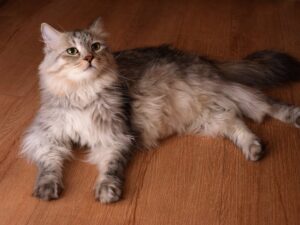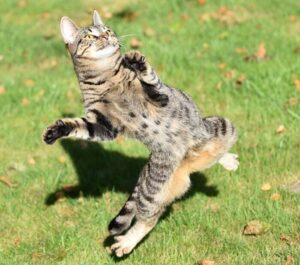Understanding how your cat’s weight affects its health as a cat owner is essential to preserving its general well-being. Numerous health issues, such as diabetes, heart disease, joint pain, and even cancer, can be brought on by being overweight.
The significance of comprehending healthy cat weight and body condition, the ideal weight for cats, the body condition scoring system, the effects of overweight and obesity in cats, the causes of overweight and obesity in cats, and methods for managing a cat’s weight and preserving a healthy body condition are all covered in this article.
By adhering to these recommendations, you can protect your pet’s health from weight-related problems and ensure that they live long, healthy lives.
Importance of understanding the connection between cat weight and health
The disease of feline obesity is very common and presents an immediate and significant problem. A new preventative strategy that emphasizes the owner’s role as opposed to weight loss as a treatment option may be beneficial.
Data from an international survey of cat owners were used in this study to examine owner personality and self-control, owner-pet attachment, feeding habits, and the physical condition of the cat.
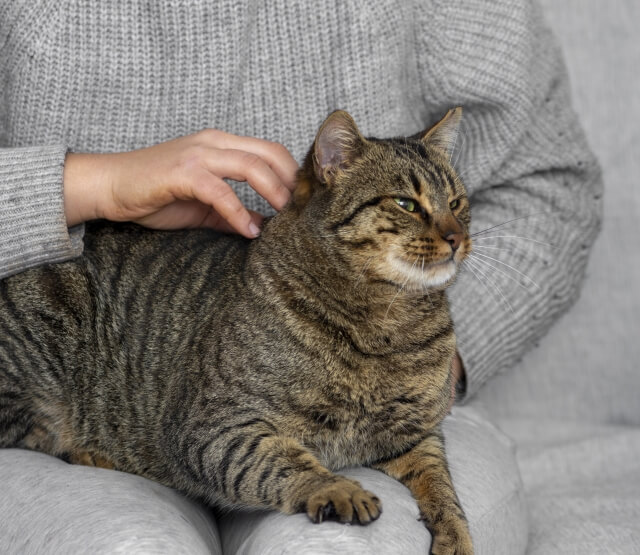
It’s important to comprehend the relationship between your cat’s weight and health to maintain its general well-being. Diabetes, heart disease, joint pain, and even cancer can all develop as a result of being overweight.
Additionally, it may reduce their quality of life and shorten their lifespan. You can help prevent these health problems in your cat and ensure that your furry friend has a long and fulfilling life by keeping an eye on their weight and taking steps to keep them at a healthy weight.
Additionally, preserving a healthy weight can enhance your cat’s vitality, mobility, and general happiness, making the effort well worth it.
Understanding healthy cat weight and body condition
Owners of cats must be aware of what a healthy cat’s weight and physical condition should be. A healthy cat should have a visible but not pronounced waistline, and a lean, muscular body.
Your cat’s ribs should be palpable to you without being overtly visible or fat-covered. Additionally, it’s critical to regularly check your cat’s weight and contact your veterinarian if you notice any changes.
By being aware of what a healthy cat’s weight and body condition should be, you can make sure that your feline friend is in good health and take precautions to avoid problems that could arise from being overweight.
The ideal weight for cats
Depending on a cat’s breed, age, and activity level, the ideal weight can change. A healthy cat should, however, typically weigh between seven to twelve pounds. This weight range can give you a good idea of your cat’s weight and whether it’s healthy or if it needs to gain or lose weight.
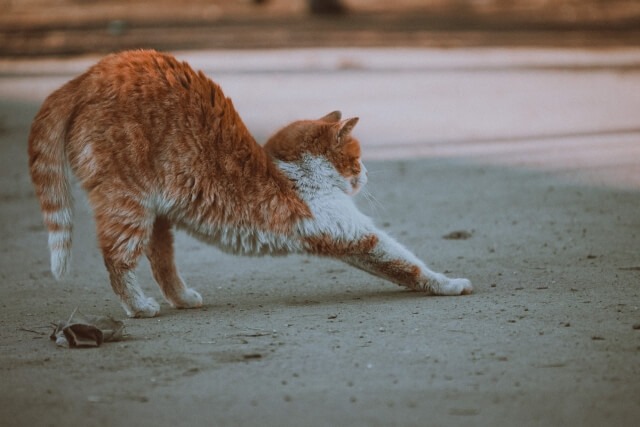
The ideal weight for your cat should be discussed with your veterinarian, who can evaluate the health of the body and provide advice based on each cat’s unique requirements. Your cat’s longevity and risk of obesity-related health issues can both be increased by maintaining a healthy weight.
Overview of body condition scoring system for cats
A piece of equipment used to measure a cat’s body composition to determine whether they are at a healthy weight is the body circumstance registering system.
The body condition of cats is typically rated using a scale of 1 to 9, with 1 denoting emaciation and 9 denoting obesity. A cat is said to have a healthy body composition with an appropriate balance of muscle and fat when it receives a score of 5, which is ideal.
To evaluate the cat’s body composition, the body condition scoring system considers elements like the cat’s ribs, waistline, and overall muscle mass.
This system allows cat owners to keep track of their cat’s weight and make the necessary dietary and exercise changes to keep their cats at a healthy weight. Consult your veterinarian to learn more about the body condition scoring system and how it can help you maintain your cat’s health.
The consequences of overweight and obesity in cats
Cats that are overweight or obese risk serious harm to their health and well-being. A cat’s joints can become weak from carrying extra weight, which can cause arthritic conditions and other joint issues.
In addition, it can make people more predisposed to getting diabetes, heart disease, high blood pressure, and other illnesses. In addition to respiratory problems, liver disease, and a shorter lifespan, obese cats may also experience.
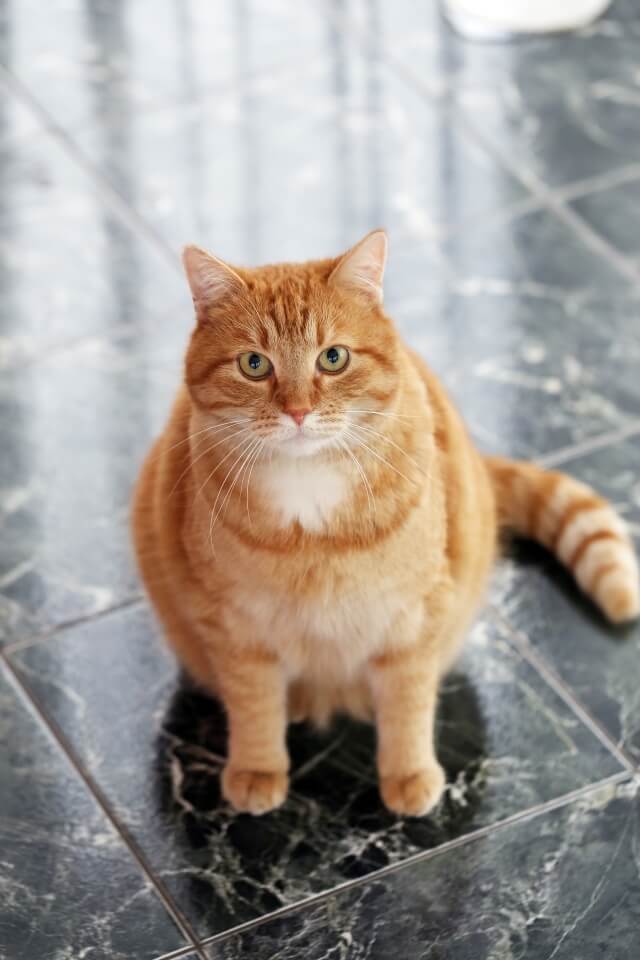
In addition, being overweight can result in fewer physical abilities and a lower quality of life. You can help prevent these health problems and ensure your cat lives a long and fulfilling life by controlling their weight and making sure they maintain a healthy body condition.
Health problems associated with overweight and obesity
A variety of health issues can develop in cats who are overweight or obese. One of them might be diabetes, which, if untreated, may result in blindness and other complications due to weight gain.
As getting overweight may put pressure on the coronary arteries and cause high blood pressure, heart disease is another common worry. Additionally, respiratory issues, liver disease, and specific types of cancer may be more common in obese cats.
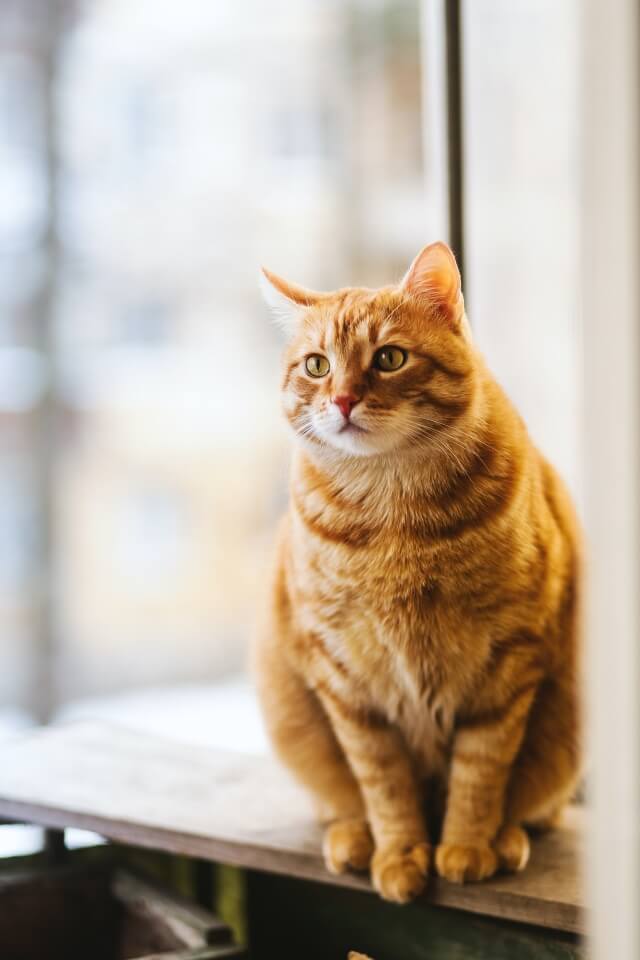
A strain on the joints from carrying extra weight can also cause arthritis and other joint issues. You can help prevent these health problems and ensure your cat lives a long and healthy life by controlling their weight and making sure they keep a healthy body condition.
Causes of overweight and obesity in cats
Cats that are overweight or obese may be affected by several factors. One of the most frequent causes is overfeeding, which can occur when people give their pets excessive amounts of food or high-calorie treats.
Cats who don’t exercise or engage in any physical activity may also gain weight. Additional medical conditions that can lead to weight gain include hypothyroidism and Cushing’s disease.
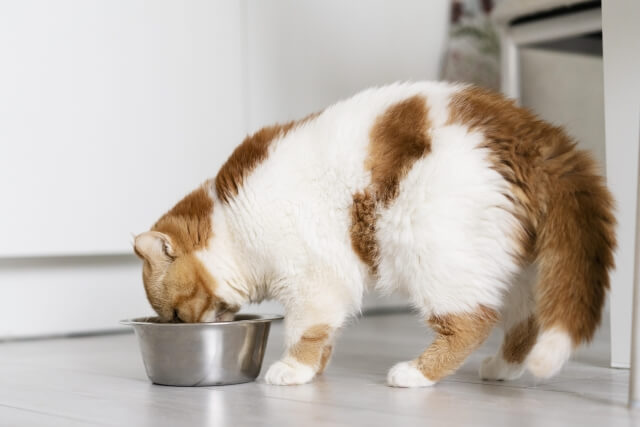
Additionally, some cat breeds, such as Persian and Himalayan cats, are more prone to obesity. Pet owners can take action to prevent these problems and assist their feline friends in maintaining a healthy weight by being aware of the factors that lead to overweight and obesity in cats.
How to manage a cat’s weight and maintain a healthy body condition
A cat needs to employ some strategies to control their weight and keep their physical appearance in good shape.
One of the most important is providing them with a well-balanced diet, filled with nutrients, that meets their specific needs. Additionally, portion control is crucial because overeating can quickly result in weight gain.
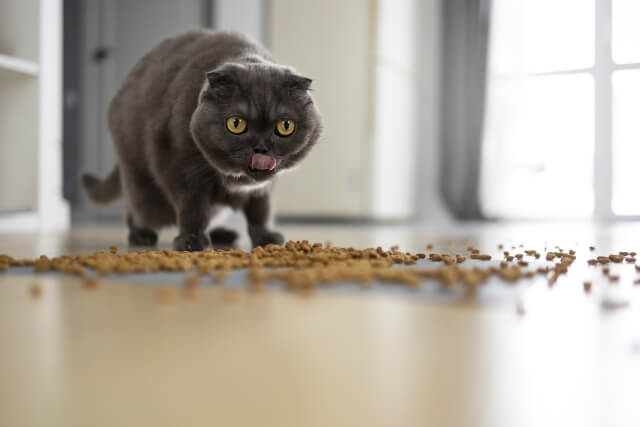
Cats can stay active and burn off extra calories by being given opportunities for play and exercise. Their weight can be monitored and any underlying health issues can be found with regular veterinary checkups.
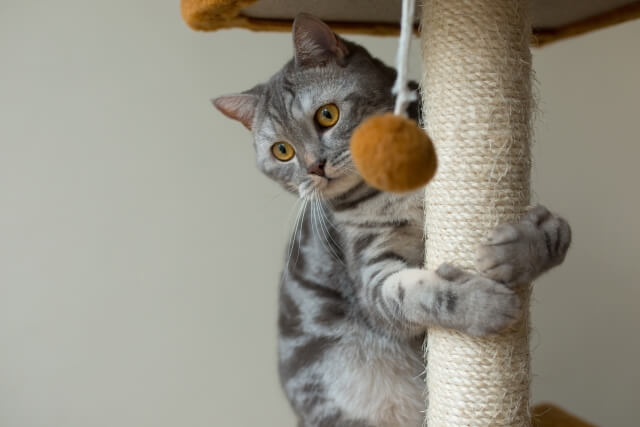
Additionally, using a body condition scoring system can assist cat owners in determining whether their cat is at a healthy weight and help them make the necessary dietary and exercise changes.
These techniques can be used by pet owners to assist their feline companions in maintaining a healthy weight and avoiding weight-related health issues.
Conclusion
In summary, preserving a healthy weight and physical condition is important for preserving cats’ general health and well-being.
Understanding how a cat’s weight affects its health is important because being overweight or obese can cause a variety of health issues, such as diabetes, heart disease, joint pain, and even cancer.
Pet owners need to know what a healthy cat’s weight and body condition look like to prevent these problems, and they should speak with their veterinarian to determine what that weight should be for their particular cat.
It’s critical to control a cat’s weight and preserve a healthy body condition through appropriate nutrition, portion control, and exercise because overfeeding, a lack of exercise, and specific medical conditions can all cause overweight and obesity in cats.

